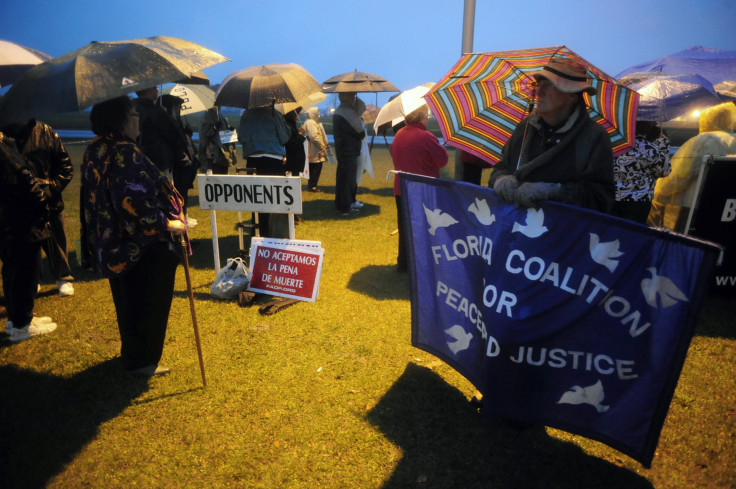Florida Death Penalty Controversy: Judge Rules State Law Unconstitutional

A Florida judge ruled Monday the state's death penalty law is unconstitutional because it does not require jurors to agree unanimously on execution, the Miami Herald reported. Circuit Court Judge Milton Hirsch's ruling — which came at a time when there is a legal struggle over the state's capital punishment laws — was issued in the case of Karon Gaiter, who is awaiting trial on a first-degree murder charge.
Florida legislators had recently enacted changes they hoped would fix issues with the sentencing process identified by the United States Supreme Court. But Hirsch ruled a new statute, a so-called "supermajority" system, requiring just 10 of 12 jurors to find in favor of a verdict of death, is unconstitutional.
"A decedent cannot be more or less dead. An expectant mother cannot be more or less pregnant," he wrote via the Herald. "And a jury cannot be more or less unanimous. Every verdict in every criminal case in Florida requires the concurrence, not of some, not of most, but of all jurors — every single one of them."
The Supreme Court previously held the state's death sentencing process was unconstitutional because the jury gave only a sentencing recommendation in capital cases, which meant the ultimate decision on life or death was left to a judge. The Supreme Court did not rule on the question of unanimity, something that all other states require outside Florida and Alabama, according to the Herald. While the state made some changes to the death penalty sentencing process, Hirsch ruled they were not enough.
"Arithmetically the difference between 12 and 10 is slight," he wrote. "But the question before me is not a question of arithmetic. It is a question of constitutional law. It is a question of justice."
Florida Gov. Rick Scott signed the new death penalty law into effect March 7, and several appeals of verdicts have followed.
© Copyright IBTimes 2024. All rights reserved.





















